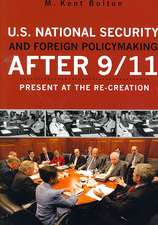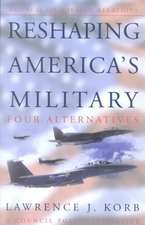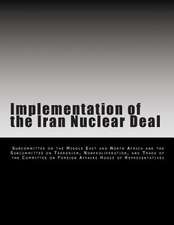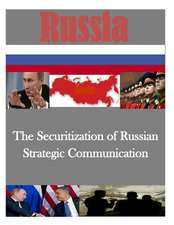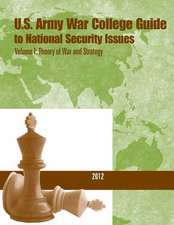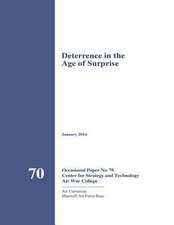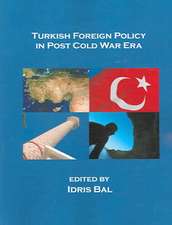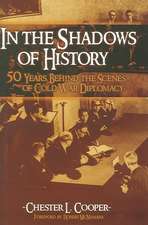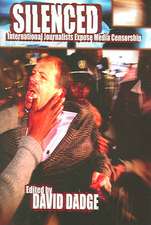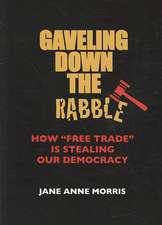Employing the Enemy: The Story of Palestinian Labourers on Israeli Settlements
Autor Matthew Vickeryen Limba Engleză Paperback – 14 iul 2017
| Toate formatele și edițiile | Preț | Express |
|---|---|---|
| Paperback (1) | 118.22 lei 6-8 săpt. | |
| Bloomsbury Publishing – 14 iul 2017 | 118.22 lei 6-8 săpt. | |
| Hardback (1) | 506.27 lei 6-8 săpt. | |
| ZED BOOKS – 14 aug 2017 | 506.27 lei 6-8 săpt. |
Preț: 118.22 lei
Preț vechi: 129.18 lei
-8% Nou
Puncte Express: 177
Preț estimativ în valută:
22.62€ • 23.53$ • 18.68£
22.62€ • 23.53$ • 18.68£
Carte tipărită la comandă
Livrare economică 15-29 aprilie
Preluare comenzi: 021 569.72.76
Specificații
ISBN-13: 9781783609949
ISBN-10: 178360994X
Pagini: 160
Dimensiuni: 135 x 216 x 15 mm
Greutate: 0.18 kg
Editura: Bloomsbury Publishing
Colecția Zed Books
Locul publicării:London, United Kingdom
ISBN-10: 178360994X
Pagini: 160
Dimensiuni: 135 x 216 x 15 mm
Greutate: 0.18 kg
Editura: Bloomsbury Publishing
Colecția Zed Books
Locul publicării:London, United Kingdom
Caracteristici
Fills a gap in the scholarship. Although there have been a number of research papers on the use of Palestinian labour in the settlements, this would be the first book length study of the subject.
Notă biografică
Matthew Vickery is a journalist and researcher covering conflict, human rights and workers' rights issues throughout the Middle East, as well as extensively in Israel and the occupied Palestinian territories. His bylines include Al-Jazeera, Foreign Policy, Ha'aretz, The Times, and USA Today among others.
Cuprins
Introduction Part I: Employing the 'Enemy' 1. Employing the 'Enemy' 2. The Middleman and the Power of the Permit 3. Underpaid and Underage, the Child Workers of the Valley 4. Occupation's Ultimate Humiliation 5. The Wretched of the Holy Land Part II: Exploiting the 'Enemy' 6. Segregating the Labour Market, Stifling the Economy 7. The Creation of Precincts of Potential Employment 8. A Reserve Army of Labour 9. State-Instigated Forced Labour
Recenzii
Vickery writes clearly and movingly about the lives and conflicts of the people that he met . it draws such a clear and concrete picture of the injustices that are being suffered by the Palestinian workers and of the direct and premeditated role played by the Israeli government in creating this situation.'
i>'Employing the Enemy provides fascinating insight into issues that are usually only available to the NGO readership . easy to read, extremely thought provoking and should be read by anyone interested in the structural hardships imposed on the Palestinians living in the West Bank.'
A forensic and humane study of Palestinian workers in Israeli settlements, Vickery's book is a much-needed resource on a complex issue.
The story of Palestinian workers in Israeli settlements is not well known. This book tells it with candour and vividness. Essential reading for those who want to understand the true extent of Israel's domination of the Palestinians.
Provides a vivid exposition of the material struggles and moral dilemmas faced by these workers, as well as the ways in which their labour produces its own small, steadfast gestures of resistance.
Vickery convincingly illuminates a little known aspect of Israel's occupation of the West Bank - the exploitation and abuse of Palestinians so desperate for work that they take underpaid and humiliating jobs in Israeli settlements.
i>'Employing the Enemy provides fascinating insight into issues that are usually only available to the NGO readership . easy to read, extremely thought provoking and should be read by anyone interested in the structural hardships imposed on the Palestinians living in the West Bank.'
A forensic and humane study of Palestinian workers in Israeli settlements, Vickery's book is a much-needed resource on a complex issue.
The story of Palestinian workers in Israeli settlements is not well known. This book tells it with candour and vividness. Essential reading for those who want to understand the true extent of Israel's domination of the Palestinians.
Provides a vivid exposition of the material struggles and moral dilemmas faced by these workers, as well as the ways in which their labour produces its own small, steadfast gestures of resistance.
Vickery convincingly illuminates a little known aspect of Israel's occupation of the West Bank - the exploitation and abuse of Palestinians so desperate for work that they take underpaid and humiliating jobs in Israeli settlements.



